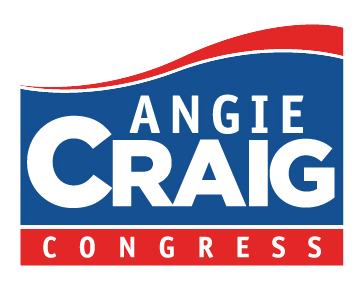By: Andrew Deziel
4/10/2020
For years, small communities throughout the state have struggled to invest in key public services. With the coronavirus causing unprecedented economic calamity, that job is quickly becoming even harder.
In hopes of giving those communities a hand up, Rep. Angie Craig, DFL-Eagan, has introduced the Small Cities and Towns Investment Act. If enacted, Craig’s plan would create an annual $10 billion block grant program for communities with fewer than 30,000 residents.
Distributed through county governments, the new grant program could be used by small communities for a wide variety of initiatives, such as improving health care services, providing public transportation, increasing the availability of childcare and supporting community centers. Craig said that the funds could play a particularly crucial role in helping to expand access to broadband in rural areas and upgrading wastewater treatment facilities, both urgent priorities for many greater Minnesota communities.
“Those kinds of projects may not get headlines,” Craig said. “But when I go to my rural communities, people want to talk about it.”
Grants would be distributed on a competitive basis, with communities expected to show a clear community need. In addition, communities would be expected to get buy in from additional partners in the private, public or nonprofit sectors.
Northfield City Administrator Ben Martig said that additional block grant funding could prove invaluable for the city, as it looks to expand access to affordable housing, childcare and high speed internet.
“Block grants are traditionally very successful programs,” he said. “I’m definitely supportive of looking into the kind of program that could help Northfield and other small cities within our county.”
The funding would be allocated through the U.S. Department of Agriculture’s Rural Development division. USDA Rural Development currently provides more than 50 financial assistance programs for rural communities, with an annual budget of approximately $150 billion.
Craig said that she began putting the bill together months ago after meeting with community leaders in both the public and private sector who indicated a need. It became a particularly urgent priority as the coronavirus pandemic hit.
“It’s a real fight for smaller towns and townships to get federal government help or funding,” said Craig. “I want to help make sure they do not get left behind.”
Although she’s introduced it as a standalone bill, Craig said she hopes that a version of the program might be included if Congress passes another coronavirus stimulus package to cover additional needs, as President Trump and House Speaker Nancy Pelosi have called for.
The bipartisan $2 trillion stimulus package passed by Congress at the end of April, known as the CARES Act, provided $150 billion in aid funding for state and local governments to cover expenses accrued through the end of the year.
The majority of that funding went to states, with Minnesota expected to collect over $2 billion. However, only communities with more than 500,000 residents received direct financial assistance, leaving out every city in the state.
As President of the Coalition of Greater Minnesota Cities, former state legislator Dan Dorman is a leader in representing small town interests at the capitol. Dorman said he’s frustrated that smaller communities didn’t receive a larger piece of relief funds.
“Communities like ours are hurting,” He said. “I could argue we’re in a worse shape than preparedness than metropolitan communities.”
Kenyon City Administrator Mark Vahlsing, who has served last year on the National League of Cities’s Community and Economic Development federal advocacy committee, said that many of his colleagues were highly disappointed to see smaller communities not receive that funding.
Smaller Minnesota cities are all too used to being left out of state and federal budgets. For example, towns like Kenyon with fewer than 5,000 people have traditionally not been eligible for road improvement funds from the state’s Highway Users Tax Distribution Fund.
Vahlsing said that while many questions are yet to be answered, he could see the new program complimenting the state’s Small Cities Development Program, which serves cities with fewer than 50,000 people and counties with fewer than 200,000.
Vahlsing said that while he would be excited to see increased investment in smaller communities, small towns like Kenyon would likely need to collaborate with neighboring cities in order to receive funds.
